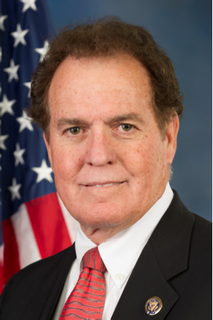A Quote by Ben Carson
I've advocated a proportional tax system. You make $10 billion, you pay a billion. You make $10, you pay one. And everybody gets treated the same way.
Related Quotes
We're going to build a wall and Mexico is going to pay. And the reason they're going to pay and the way they're going to pay, Bob, is this. We have a trade deficit now with Mexico of $58 billion a year. The wall is going to cost $10 billion a year. That's what it's going to cost. It's going to be a powerful wall. It's going to cost $10 billion.
Americans spend about 6 billion hours a year collecting the data and filling out the forms. We spend $10 billion to H&R Block and other preparers. And on top of that, $2 billion in tax preparation software, which still takes hours of work. It's outrageous the burden we put on people, and guess what, you go to Europe, you go to Japan, it's 15 minutes and costs nothing.
This sounds crazy, I know, but you can make a billion dollars - very few people do - but you can make a billion dollars on a product. It can be "Lion King," it can be "Simpsons," it can be "Family Guy," who knows what it is. Or you can make zero. But you can't make a billion dollars if you don't own it.
I think we should have basically the same tax policy that Germany, Japan, the U.K., everybody else has, which is a tax rate in the mid-20s and no loopholes. Zero. The U.S. has the most antiquated tax system. And that means some people are going to pay more taxes, and some people are going to pay less.
Yes, we can pay the interest on the debt. We can renew the $500 billion worth of bonds that are coming due. We can mail out our Social Security checks. We can make sure those Medicare claims are honored. We can pay our military. We can protect our veterans. But when you get beyond that, the soup gets a little thin.
There's a certain degree of speculation that goes into valuations. In so far as the market supports a valuation, everyone who gets a great one deserves it, but they should also be cautious because that speculation is temporary. I saw Yahoo go from $100 billion to $10 billion. It's not a long-term measure.
I don't think scientists can dictate from above what we should do, because it's not a matter of scientific decision. If you want to have everybody living like a Beverly Hills millionaire, then 2 billion people might be too many. If we want to have a battery-chicken kind of world, with everybody having an absolute minimum diet, you might be able to support 10 billion.
I never said it. Honest. Oh, I said there are maybe 100 billion galaxies and 10 billion trillion stars. It's hard to talk about the Cosmos without using big numbers. I said "billion" many times on the Cosmos television series, which was seen by a great many people. But I never said "billions and billions." For one thing, it's too imprecise. How many billions are "billions and billions"? A few billion? Twenty billion? A hundred billion? "Billions and billions" is pretty vague. When we reconfigured and updated the series, I checked-and sure enough, I never said it.



































